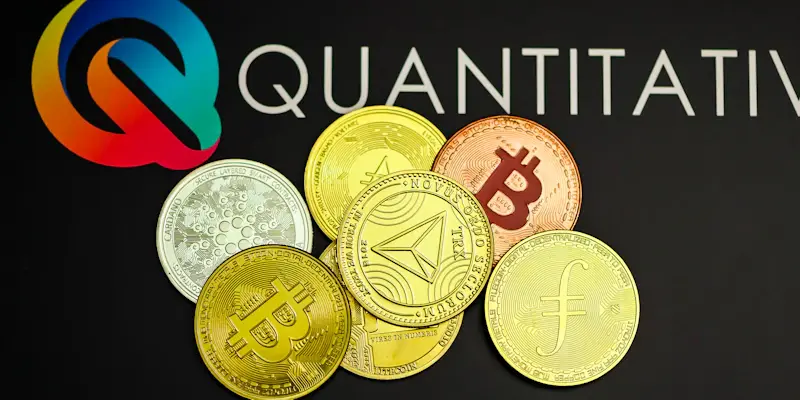The global financial landscape is undergoing a seismic shift with the advent of cryptocurrencies. These digital assets, such as Bitcoin, promise financial autonomy and liberation from conventional banking systems, capturing the imagination of many, especially in developing nations. However, the International Monetary Fund (IMF) remains a formidable force, often dictating economic policies through conditional loans that can stymie such innovative endeavors. This article delves into whether cryptocurrencies can genuinely break the IMF’s stranglehold on these economies, exploring their potential and challenges.
The Promise of Financial Independence
Cryptocurrencies provide a decentralized alternative to traditional banking systems, a lure for developing nations burdened by the stringent conditions imposed by entities like the IMF. El Salvador’s bold move to adopt Bitcoin as legal tender in 2021 signified a pivotal step towards financial autonomy. President Nayib Bukele envisioned a future where the nation could diminish its reliance on fiat currencies and the global central banking system, empowering the Salvadoran population with an alternative financial system. This was a notable attempt to reassert economic control and offer citizens a means of liberation.
However, the transition to Bitcoin was fraught with difficulties. Despite significant government efforts to promote the cryptocurrency, adoption among Salvadorans was sluggish. Surveys, such as the one conducted by University Francisco Gavidia in San Salvador, revealed widespread disinterest and a lack of understanding, with over 90% of the population not utilizing Bitcoin by 2023. The challenge of migrating from a well-established fiat system to a new digital alternative became glaringly apparent. The Bitcoin-induced enthusiasm faced considerable friction due to societal apprehension and infrastructural limitations, highlighting the complexities of overhauling established financial norms.
The concept of financial liberation through cryptocurrencies, alluring as it is, has to contend with deep-seated habits and awareness gaps in developing countries. Residents often lack the education or technological acumen necessary to understand and adopt digital currencies swiftly. This gap underscores the challenge presented by transitioning to new systems that, while potentially transformative, require robust awareness campaigns and infrastructural support to gain widespread acceptance and integration.
The IMF’s Role in Halting Bitcoin Adoption
The IMF’s influence in shaping El Salvador’s Bitcoin journey was profound. Known for providing development loans accompanied by stringent conditions, the IMF’s modus operandi typically necessitates significant economic reforms and market liberalization. In El Salvador’s case, access to a $1.4 billion credit line was conditional upon revoking Bitcoin’s legal tender status. This appreciable leverage effectively stymied President Bukele’s pioneering Bitcoin agenda, underscoring the IMF’s ability to exert control through economic stipulations.
Consequently, Bukele’s administration was compelled to scale back its Bitcoin ambitions. The government had to restrict Bitcoin purchases, suspend tax payments in Bitcoin, and repeal the law mandating businesses to accept the cryptocurrency. These enforced measures curbed the spread of Bitcoin-based financial systems and highlighted the formidable challenges posed by entrenched global institutions like the IMF. This intervention wasn’t an isolated case; similar scenarios have unfolded in other developing nations where economic leverage is utilized to impose stringent fiscal guidelines, creating an arduous path for countries aspiring for financial sovereignty.
The IMF’s actions typify a recurring theme of economic colonization. By leveraging financial aid to impose stringent economic conditions, the organization enforces a cycle of dependency, thwarting efforts by developing nations to achieve autonomy. This pattern reflects deep-seated systemic issues where global financial institutions prioritize stability often perceived as preserving a status quo that benefits more economically developed countries. Consequently, meaningful financial reform in less economically developed nations encounters considerable resistance.
The Broader Implications of IMF’s Influence
Critics argue that the IMF’s adamant stance against Bitcoin epitomizes a broader agenda to maintain fiat currency dominance globally, aligning with multinational corporations’ and central banks’ interests. The IMF, as a United Nations arm, theoretically aims for global economic stability. However, its implementation practices often sacrifice the financial sovereignty of developing nations on the altar of overarching control. This viewpoint is not limited to El Salvador; similar discontent has been observed in other regions under the IMF’s guidance.
Kenya, for instance, experienced mass protests against IMF-led austerity measures and regressive taxes, a testament to the mounting discontent towards the IMF’s influence over national economic policies. Such actions underline widespread frustration, emphasizing the broad opposition towards policies perceived as economically invasive. The IMF’s insistence on fiat currency preservation appears to protect interests deeply embedded within the established global economic structure. This dynamic nurtures scenarios where financial innovations like Bitcoin confront palpable resistance, both ideological and practical.
The broader narrative underscores the magnitude of challenges faced by developing nations in embracing cryptocurrencies. Financial liberation, reflected through decentralized digital currencies, presents a compelling alternative to traditional financial systems. Yet, the road to such liberation is fraught with obstacles imposed by entrenched global entities. The emerging resistance showcases the complexities and inherent power struggles present within the global economic framework, where new financial tools clash against well-established systems.
The Future of Cryptocurrencies in Developing Nations
The global financial landscape is experiencing a major transformation with the rise of cryptocurrencies. These digital currencies, like Bitcoin, offer the promise of financial freedom and independence from traditional banking systems, capturing the interest of many, particularly in developing nations. On the other hand, the International Monetary Fund (IMF) continues to be a powerful entity, often shaping economic policies through conditional loans, which can hinder such innovative financial opportunities. This article explores whether cryptocurrencies can genuinely loosen the IMF’s grip on these economies, analyzing both the potential and the challenges.
Cryptocurrencies provide an alternative for individuals and businesses in developing countries to bypass some of the constraints imposed by the IMF. By enabling direct transactions that do not rely on centralized banking systems, these digital assets may empower local economies. However, there are significant challenges, such as regulatory acceptance, market volatility, and technological hurdles. This article investigates the potential of cryptocurrencies to offer financial autonomy while also scrutinizing the difficulties they face in overcoming the dominance of organizations like the IMF.

